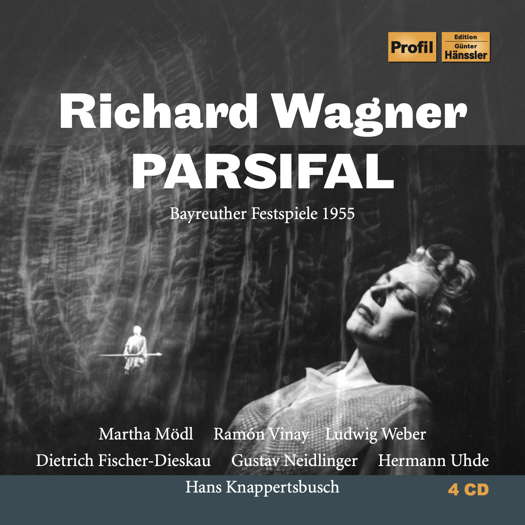- Seymour Bernstein
- M Zachary Johnson
- Musorgsky: Boris Godunov
- Britten: War Requiem
- Dan Iordăchescu
- Henry Carey
- Vaughan Williams: Serenade to Music
- Beethoven: An die Ferne Geliebte
 WORD SEARCH: Can you solve Allan Rae's classical music word search puzzles? We're currently publishing one per month.
WORD SEARCH: Can you solve Allan Rae's classical music word search puzzles? We're currently publishing one per month.
 DISCUSSION: What is a work? John Dante Prevedini leads a discussion about The performing artist as co-creator, including contributions from Halida Dinova, Yekaterina Lebedeva, Béla Hartmann, David Arditti and Stephen Francis Vasta.
DISCUSSION: What is a work? John Dante Prevedini leads a discussion about The performing artist as co-creator, including contributions from Halida Dinova, Yekaterina Lebedeva, Béla Hartmann, David Arditti and Stephen Francis Vasta.

Truly Unique
PATRICK MAXWELL pays homage to a 1955 Parsifal from the Bayreuth Festival
'All these impressive voices, heard here in their prime, combined with Knappertsbusch's wonderful orchestra, make a sound which is truly intimate and doubly intense.'
This wonderfully worshipful recording of Wagner's most worshipful opera takes something of a pride of place in the post-war recordings of high German Romanticism. In hearing these venerated discs - like Solti's epic Ring cycle from the 1950s and 60s, the first DG recordings of Karajan or the Fischer-Dieskau/Moore Lieder of the same time - it is not difficult to imagine that such impassioned and skilled musicianship was only possible from those who had been born in the first years of the twentieth century, survived its middle and had dedicated its second half to their music making alone. That it was the intensity of Schubert, Beethoven, Strauss and Wagner above all that crowned their achievement should come as no surprise. It's as though these magisterial figures, now embossed in recording gold, were fulfilling a desire of their audiences and of themselves to understand the horrors that had gone before with such devotion to the canonical works of the past.
The reinvention and attempted restoration of Wagner after the War was the focus of this drive. Emblematic of this were the revolutionary set designs of Wieland Wagner, who replaced the traditionally naturalistic scenes with provocatively bare scenes of white. Such minimalism was anathema to Hans Knappertsbusch, who had based his admirable musical reputation on intensely moving renditions of Wagner in Vienna and Munich before and during the War, marked by their slow tempi and adherence to Wagner's scores. Above all, Knappertsbusch was known for his Parsifal, and this recording shows why.
Slow tempo and ample rubato are certainly hallmarks of his style, and the Bayreuth Orchestra duly follows with all the characteristics of the mid-twentieth-century Wagner one would expect: molto vibrato in the strings, fierce dynamic changes at points of emphasis, and the shudderingly, out-of-tune brass sound that somehow fits the sense of organic, natural growth Wagner wants to find from it. This sound continued in Karajan, as his 1981 recording displays. Just listen to the almost meandering, penitential strings from the Prelude's Grundthema and the mannered articulation of the brass in the 'Faith' motif.
Listen — Wagner: Vorspiel (Parsifal)
(PH23002 CD1 track 1, 0:08-1:06) ℗ 1955 Bayerischer Rundfunk :
The cast is superlative. Dietrich Fischer-Dieskau's voice is instantly recognisable to many, but he makes a truly intense and typically text-driven commitment to the role of Amfortas.
Listen — Wagner: Wehvolles Erbe, dem ich verfallen (Parsifal Act I)
(PH23002 CD2 track 5, 1:38-2:36) ℗ 1955 Bayerischer Rundfunk :
Martha Mödl, one of the three great Wangerian sopranos of the second half of the last century, brings a glorious sound to the enchanting Kundry.
Listen — Wagner: Ach! - Ach! - Tiefe Nacht! (Parsifal Act II)
(PH23002 CD3 track 3, 0:00-0:57) ℗ 1955 Bayerischer Rundfunk :
The piercing tenor of Ramón Vinay is perfectly suited to the title role. All these impressive voices, heard here in their prime, combined with Knappertsbusch's wonderful orchestra, make a sound which is truly intimate and doubly intense.
Listen — Wagner: Nur eine Waffe taugt (Parsifal Act III)
(PH23002 CD4 track 13, 3:18-4:08) ℗ 1955 Bayerischer Rundfunk :
This is doubtless helped by the recording technology of the day, but it is a truly unique sound, one of the most recognisable colour-schemes in recording history, later epitomised by the trademark Karajan Deutsche Grammophon sound of the following decades. Knappertsbusch did not like recording, preferring the risky immediacy of performance and the artistic freedom it gave him and his musicians. This recording of a live performance is therefore the closest we will get to reimagining his legacy. It is a sound to be cherished, and this disc, one of Hans Knappertsbusch's fifty-performances of Wagner's last opera at the shrine of Bayreuth, is a testament to its time and to the enduring work of its pioneering artists.
Copyright © 6 September 2023
Patrick Maxwell,
Buckinghamshire, UK



